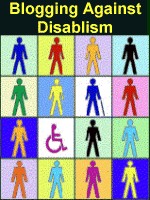Web Development and Aversive Disablism

At A Pretty Simple Blog, James Coltham writes a great article as part of Blogging Against Disablism Day considering the origins of ‘disablism’ and reflecting on the ways disablism plays out through web developers’ actions when creating inaccessible content. I recommend reading his post in full, but to crudely paraphrase, he observes that ignorance is no excuse:
Many will argue that if they do not know about the issues, they can’t be guilty of being ‘disablist’.
Further more, when considering accessibility on the web:
I struggle to think of a valid reason why a web professional should not know about, and practise, web accessibility. Of course, accessibility isn’t binary, and there are many grey areas. But the fact that we still see many of the “school-boy” errors (missing descriptions for images, text that won’t resize, etc) means that there is a long way still to go to get anywhere near an acceptable global standard.
And like it or not, every single person who makes the choice not to spend the 20 seconds giving that image a suitable description, or thinks that aesthetics beats usability, or who assumes blind people wouldn’t be interested in their site anyway – these people are the embodiment of disablism, because they have relegated the needs of those users (for whatever reason) and, by that action, cast them as inferior.
The issues James raises are an important and, I think, highlights the subtle ways in which discrimination and exclusion are propagated online. I would call this Aversive Disablism.
Aversive Disablism is a process identified by Mark Deal. His paper ‘Aversive Disablism, subtle prejudice towards disabled people’ (Disability & Society, Vol 22, No. 1, January 2007) observes that blatent forms of prejudice towards disabled people appear to be declining in the UK. However, subtle forms of prejudice remain and persistently damage progression towards an accessible and equitable society.
Aversive disablists recognize disablism is bad but do not recognize that they themselves are prejudiced. Likewise, aversive disablism, like aversive racism, is often unintentional.
Deal draws from many different discussions of aversive racism to create an understanding of what he terms aversive disablism. He attests:
Aversive racists, Gaertner and Dovidio argued, are not anti-black, but pro-white. Likewise, aversive disablists may not be anti-disabled, but rather pro-non-disabled.
Deal makes several key observations. Firstly that this in-group favouritism can be can be as damaging to disabled people as more overt prejudiced behaviours. Secondly, it highlights how people who believe they hold a liberal attitude towards disabled people (including those with disabilities who do not identify as disabled) may support behaviour and social policy that excludes other disabled people.
When we transfer these ideas to specific contexts, Deal attests:
This is not to argue that the building industry is inherently disablist, but, as Young (1990) noted, ‘The conscious actions of many individuals daily contribute to maintaining and reproducing oppression, but those people are usually simply doing their jobs or living their lives and do not understand themselves as agents of oppression’.
In his blog post, I think James is observing the damaging actions of aversive disablist web developers. When commissioning or building websites it’s vital that we recognise this subtle prejudice.
7 comments